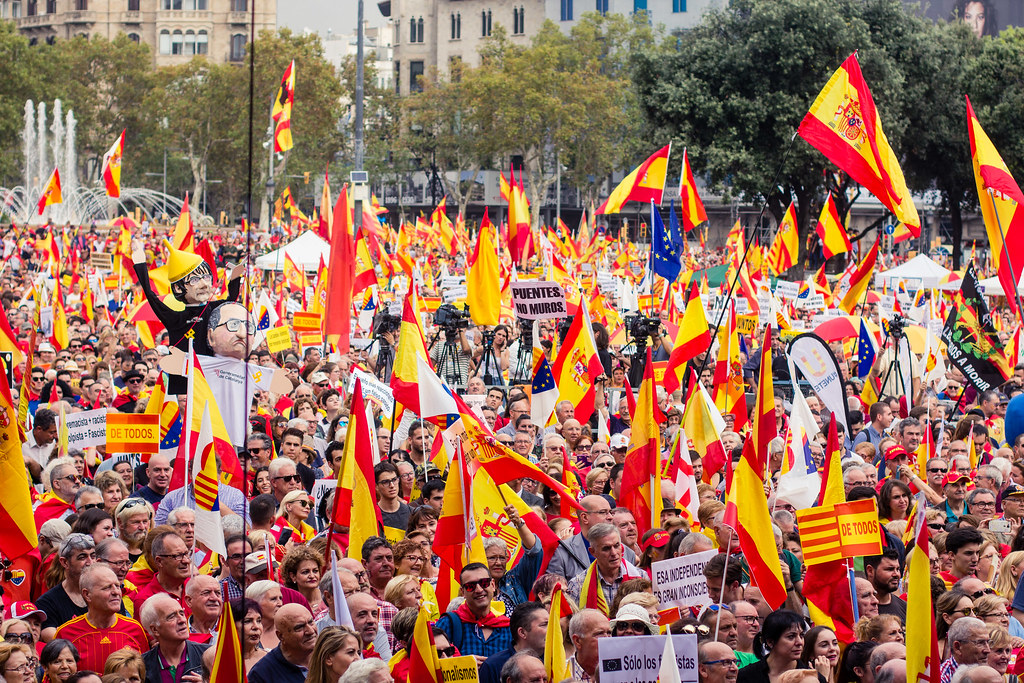
Just over six years after the referendum in Catalonia and almost four years after the sentences for the politicians involved were released, the question of political amnesty has monopolised Spanish media and politics.
Following the unforeseen announcement for elections and their subsequent, the conservative Partido Popular (“Popular Party”) found themselves with the highest number of seats in the Spanish congress yet unable to form a government alongside the far-right party, Vox, due to the reluctance from the rest of the political groups in the chamber to align themselves with the rhetoric of the party. Pedro Sánchez, the leader of the centre-left PSOE (“Spanish Socialist Workers’ Party), was ‘offered’ the chance to present his candidacy once again before the MPs in another investiture debate and vote prior to the 27th of November.
This leaves Sánchez in somewhat of a difficult situation: he either renounces his chances at another term as Spain’s Prime Minister, triggering the dissolution of the parliament and the call back to polls for the sixth time in the past nine years or alternatively, he might decide to form an alliance with the Catalan independentist parties, particularly Junts and ERC (“Republican Left of Catalonia”), driven by his need to secure votes in favour from the hardline pro-independence parties. Notably, an alliance with the Junts, led by the ex-president of the Generalitat who fled the Spanish state six years ago in order to avoid arrest over his role in “masterminding the attempted secession”, Carles Puigdemont, would result in the attainment of votes through unpopular amnesty policy.
This led to the more unionist groups in Catalan society, particularly Societat Civil Catalana (“Catalan Society”), in company with groups and parties that operate statewide, to call for a demonstration on the 8th of October to express the public discontent felt about the Socialist party’s decision to consider an amnesty on what they claim is a proof of PSOE’s significant reliance on Catalan separatist parties. Elda Mata, the president of SCC, claimed that their role is to “give voice to the citizens of Catalonia and the rest of Spain” who are against Catalonia becoming an independent state. Under the banner ‘Not in my name – no amnesty, no self-determination’, the organisers wanted to present a “unitary and transversal” show of Spanish unionism. Amongst the people that gathered outside of Gaudí’s Casa Milà (also known as La Pedrera) chants of “Viva España” and lines that called for Puigdemont to be sent to prison and which stated that Catalonia belongs to Spain were loudly proclaimed and quietly received by the spectators.
In the subsequent march, amidst the tens of thousands of people that marched through Barcelona’s Passeig de Gràcia, there was a stark contrast in attendance figures – 300,000 according to the organisers and no more than 50,000 estimated by the Barcelona local police. Politicians from across the right made their presence known from Alberto Núñez Feijóo, the spurned candidate for the office and leader of the PP on a state level, Isabel Díaz Ayuso, leader of the aforementioned party in Madrid as well as the majority of her cabinet, to Santiago Abascal, the leader of Vox were among those present. All of them agreed that the proposed deal was unconstitutional. This deal would constitute the largest amnesty granted in the Spanish state since blanket amnesty was granted in 1977 during the Transition period for crimes committed under the Francoist dictatorship, as well as being the first amnesty law approved within the European Union since 1991. They argued that the deal was a strategy for Pedro Sánchez to maintain his coveted position, and this perspective resonated widely among the march’s attendees. Javier Tapia, a 55-year-old worker in the chemical industry argued that “An amnesty would undermine the judiciary. An amnesty would put the government above democracy and the rule of law”, an argument shared with Abascal – whose rise as a politician along with the rise of his political party is largely owed to Spaniards fervent and visceral opposition to Catalan independence and nationalism, calling the amnesty “an assault on the constitution” and accused the interim prime minister of carrying “real abuses” in order to hold on to power for longer.
Despite these claims, Sánchez has insisted that whatever step he decides to take will always be in accordance with the rules established in the constitution and “in the common interest” of the greater Spanish public. On the other hand, the current Catalan regional president, Pere Aragonès (ERC) described the protest as no more than a failure from the organised Spanish right-wing. He believes that their presence in the Catalan capital would only fuel a stronger drive for independence. Critics took to X (previously known as Twitter) to complain about the large number of people descending from the Madrid-Barcelona high-speed train early on the morning of the 8th with Spanish ‘rojigualda’ flags (the red-yellow-red constitutionally approved version of the Spanish flag) around their necks, leading to claims that the protest itself didn’t represent the actual Catalan opinion as those who attended were not really Catalan.
It does beg the question, with the possibility of more than 1,400 people potentially benefiting from the amnesty, will the acceptance of the latter improve relations between the central and the regional government or will it empower the independence movement into a second attempt at a referendum?
Image: Javier Ortega, Secretario General de VOX y Pedro Fernández, Vicesecretario Jurídico de VOX; junto a los equipos provinciales de Barcelona y Gerona encabezan la manifestiación del Día de la Hispanidad en Barcelona 2018 // PDM 1.0 DEED



Average Rating